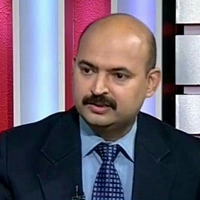
GI & Obesity Surgery
MS, MBBS, DNB
Dr Neeraj Rayate is a GI and General surgeon with expertise is laparoscopic and robotic surgery for gastro-intestinal diseases and bariatric surgery. After completing his medical education in India, Dr. Rayate completed his advanced training as a fellow at the Department of Oncosurgery and Gastroenterology, at the Athens Medical Center in Greece. He has also completed a fellowship in Gynecological Endoscopy from the Giessen School of Endoscopic Surgery in Germany. Dr. Rayate has special interest in Hepatopancreatobiliary surgery and gynecolological oncology.
Qualification: MS - General Surgery, MBBS, DNB - General Surgery, Fellowship in Surgical Gastroentology.
Experience: 17 Years Experience
Timings: Mon, Thu(10:00 AM - 8:00 PM) Tue - Wed, Fri – Sat(12:00 PM - 8:00 PM)

GI & Obesity Surgery
M.S ( Gen. Surg ) , F M A S
Dr. Satish Pattanshetty is a General surgeon who has expertise in single port laparoscopic and endoscopic surgery, Bariatric and metabolic surgery and robotic obesity surgery. He has received extensive training in bariatric and metabolic surgery in Taiwan.
Dr. Pattanshetty graduated with top honors in his MS Surgery program from the B.J Medical College and has completed a Fellowship in Minimal Access Surgery from AMASI.
Qualification: M.S ( Gen. Surg ) , F M A S
Experience: 14 Years Experience.
Timings: Mon – Sat (4:00 PM - 7:00 PM)